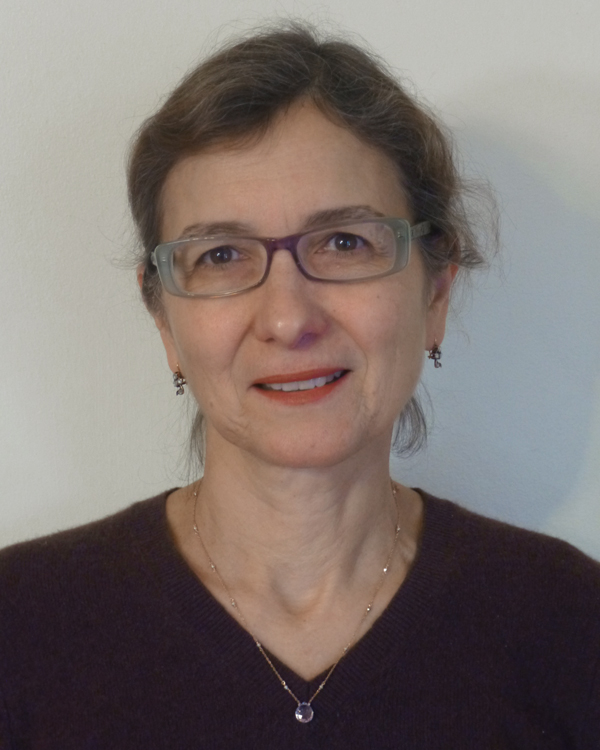Research in Gender
Gender inequalities have been persistent and pervasive in all economies. Until recently, the importance of gender inequalities was not well-appreciated in economic theory or policies. Today, gender-equitable approaches to economic policy-making are becoming increasingly common. In 2015, with the adoption of Sustainable Development Goals, the United Nations declared achieving gender equality as a central goal in economic development outcomes to be achieved by 2030.
Commitment to Gender Equality
We are one of a handful of Ph.D.-granting economics departments in the world with a core strength in feminist economics. We use gender as a central category of analysis alongside, class and race.
TOPICS OF RESEARCH
Our feminist economics research focuses on theory, empirical work and economic policy, addressing the causes and consequences of gender inequalities in economic life and development of economic policies that aim to eradicate gender inequalities. Topics include
- Gender and macroeconomics
- Gender and international trade
- Gender differences in income and time poverty
- The interface of paid and unpaid work
- Gender differences in labor market behaviors and outcomes
- Causes and consequences of violence against women
- Care policies
- Role of institutions in promoting gender equality
COURSE WORK THROUGH A GENDER LENS
Since 1995 we have offered undergraduate and graduate students the opportunity to study economics through a gender lens.
Undergraduate and Master's Level
- Feminist Economics
- ECON 5170/6170
- Gender, Development, and Globalization
- ECON 5560/6560/GNDR 5560
- Political Economy of Race/Ethnicity, Gender and Class
- ECON 2040/GNDR 2040
Ph.D. Field Courses
- Labor/Gender I
- ECON 7150
- Labor/Gender II
- ECON 7180
Faculty Focusing on Gender Equality
We would love to hear from you! Our faculty would be happy to share more about their current projects.
Current PhD Student Research
Dissertations in Progress |
||
|
|
Yazgi Genc |
Local child care markets and women in Utah |
|
|
Aashima Sinha |
Three Essays on Micro- and Macro-Economic Implications of Care Work through a Gender Lens |
|
|
Chimedlkham Zorigtbaatar |
Three Essays on Gendering, Gender Division of Domestic Labor and Labor Market Outcomes in Mongolia. |
Latest Department Publications
Utah 2021 Child Care Market Rate Study
Author: Catherine Ruetschlin and Yazgi Genc
Published: Utah Department of Workforce Services Office of Child Care
The Routledge Handbook of Feminist Economics
Author: Günseli Berik and Ebru Kongar (PhD, 2003, U of Utah)
Published: Routledge International Handbooks, 2021
Gender norms and intra-household allocation of labor in Mozambique: a CGE application to household and agricultural economics
Authors: Diksha Arora and Codrina Rada
Published: Agricultural Economics, 2020
The Effects of Teachers' Unions on the Gender Pay Gap among US Public School Teachers
Authors: Eunice Han
Published: Industrial Relations A Journal of Economy and Society,2020
What is Eve Teasing? A Mixed Methods Study of Sexual Harassment of Young Women in the Rural Indian Context
Authors: Haimanti Bhattacharya with Sharon Talboys, Manmeet Kaur, Jim VanDerslice, Lisa Gren, and Steve Alder
Published: Sage Open, 2017
A Gendered Model of the Peasant Household: Time Poverty and Farm Production in Rural Mozambique
Authors: Diksha Arora (Ph.D. 2016, U of Utah) and Codrina Rada
Published: Feminist Economics, 2017
Rape Myth Acceptance among College Students in the United States, Japan and India
Author: Haimanti Bhattacharya et. al.
Published: Sage Open, 2016
Spousal Violence and Women's Employment in India
Author: Haimanti Bhattacharya
Published: Feminist Economics, 2015
Utah's Labor Market for Child Care Professionals
Author: Catherine Ruetschlin
Forthcoming: Utah Department of Workforce Services Office of Child Care
The Cost of Quality Childcare in Utah
Author: Catherine Ruetschlin
Forthcoming: Utah Department of Workforce Services Office of Child Care
The gender gap in labor market self-promotion: discrimination, beliefs, and norms: An experiment
Author: Pavitra Govindan
Forthcoming: Working Paper
Do Meritocracies Increase Females Selecting Into Male-dominated Environments?
Author: Pavitra Govindan
Forthcoming: Working Paper
Selected Recent Publications from Alumni
Adem Elveren
Ph.D. 2008, Associate Professor at Fitchburg State University
Militarization and Gender Inequality: Exploring the Impact
Co-author: Valentine M. Moghadam
Journal of Women, Politics & Policy, 2022
Özge Özay
Ph.D. 2010, Assistant Professor, Fitchburg State University
Expanding Understanding of Poverty: Time Poverty Revealed Time-Use Data
Harnessing Time-Use Data for Evidence-based Policy, the 2030 Agenda for Sustainable Development and the Beijing Platform for Action: A Resource for Data Analysis, United Nations ESCAP, 2021
Nursel Aydiner-Avsar
Ph.D. 2011, Associate professor at Akdeniz University
The Gender Impact of Unemployment on Mental Health: A Micro Analysis for the United States
Forum for Social Economics, 2021
Chiara Piovani
Ph.D. 2011, Associate Professor, University of Denver
Gender and Development Programme
Work Time Matters for Mental Health: A Gender Analysis of Paid and Unpaid Labor
Review of Radical Polical Economics, 2021
Diksha Arora
Ph.D. 2016, PostDoctoral Fellow, Colorado State University
Agricultural Economics, 2020
Jacqueline Strenio
Ph.D. 2018, Assistant Professor of Economics at Norwich University
Time Heals All Wounds? A Capabilities Approach for Intimate Partner Violence
Feminist Economics, 2020
Emel Memis
Ph.D. 2007, Associate Professor, Ankara University
“Changes in Global Trade Patterns and Women’s Employment in Manufacturing, 1995-2011”
Feminist Economics, 2018
Özge Izdes
Ph.D. 2011, Assistant Professor, Istanbul University
Engendering Welfare States: How Fa(i)r are Scandinavian Welfare States
Journal of Economic and Social Thought, 2017
Yunsun Huh
Ph.D. 2011, Associate Professor at University of Wisconsin, Whitewater
“Gender Empowerment and Educational Attainment of US Immigrants and their Home-Country Counterparts”
Feminist Economics, 2017
Ebru Kongar
Ph.D. 2003, Associate Professor at Dickinson College
Gender and Time Use in a Global Context
Co-Author: Rachel Connelly
Palgrave, 2017











